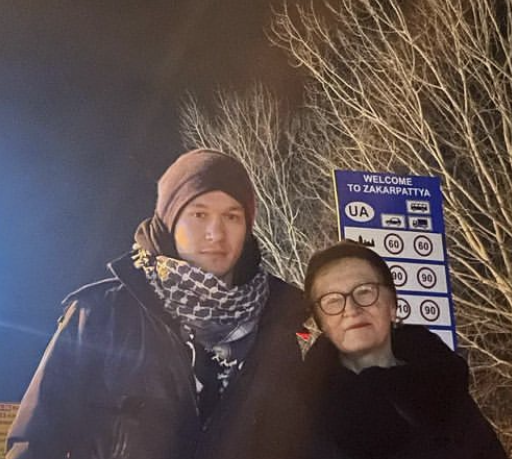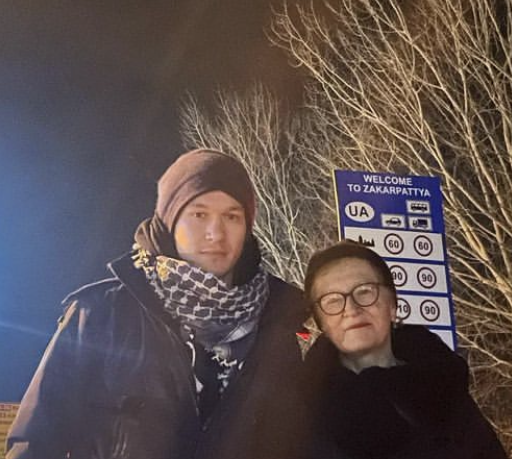Yesterday our shelter for elderly and disabled IDPs (internally displaced people) in Ukraine enjoyed a visit from Ignatius Ivlev-Yorke and one of his partners. Ignatius runs a civilian evacuation team in eastern Ukraine. The members of the team are all volunteers. Some of them are Ukrainians, others are foreigners. Ignatius himself holds a UK passport. His father is British, his mother is Russian and he speaks fluent Russian and English with a bit of an accent ;-). He has traveled extensively in Ukraine since he was a kid, even predating the 2014 Maidan and initial Russian invasion later that year.
When Russian military launched a subsequent all-out invasion in February 2022, he and his mother were in Budapest, Hungary. They promptly up-stakes and headed east into Ukraine, toward the besieged capital Kyiv.

Ignatius soon rallied a team of fellow volunteers around the mission of finding civilians trapped in the crossfire and helping them evacuate to safer locations to the west.
Finding these people is just the first step in an arduous process. By the time Ignatius and his team arrive at a location, most of the people who have the wherewithal to leave have already left. So the people Ignatius encounters really are “sticky” in the “hot zone.” Many of them have learned to live underground, in makeshift quarters set up in basements or cellars. They come out when the coast is clear to pick up food, water and other aid goods from other humanitarian workers like Gennadiy’s dad, always subconsciously listening for the whining wail of incoming artillery rounds. For these people “dodging bullets” is a way of life.
An important reason for many of them to hang on like that is because they don’t know where else to go. Many of them are elderly and either have no family or have been separated from family (see “Grandma Lena was Lost”). Unfortunately, the Ukrainian government will only provide help to a very specific profile of people, and many people fall through the cracks. So when Ignatius and his team offer to help someone evacuate, they not only have to give a lift out, they also have to find someplace to take them. That’s where Gennadiy and the nursing home come into the picture. Since I’ve been volunteering at the nursing home, Ignatius has sent at least six people here.
On a recent drive into Khmelnytskyi to pick up two of those newly arriving residents at the train station I asked Gennadiy if he expects to accommodate many more new residents in the coming weeks. I am worried about the Russian offensive around Bakhmut. If the Russians continue to advance, more and more civilians will be pushed out . . .
To my chagrin, Gennadiy told me he can’t accept any more evacuees at the nursing home, because the facility is already filled to capacity. He doesn’t have space to house them, staff to care for them or bandwidth to look for additional resources.
Certainly, that is a concerning state of affairs, especially for Ignatius. If he can’t find new “homes” for people, he can’t really help them, no matter what risks he takes to reach them in their war-torn bunker communities.
This is where the RAYA community steps up. We are marshaling resources so that if this war continues to drag on, if the Russians continue pushing further into eastern Ukraine, if Ignatius continues to find people in need of help through the summer, we will have resources to take them in and provide shelter.
Dear reader, please consider carving out some time from your personal life to volunteer in Ukraine, especially if you speak Ukrainian or Russian. We need more Americans on the ground here. If you are not able to volunteer in Ukraine, please think of things you can do to tell people in your community about this humanitarian need. And please consider making a monetary pledge to help support the work of brave and courageous humanitarian workers like Ignatius Ivlev-Yorke and his team, Gennadiy and his staff here at the nursing home, and Gennadiy’s father in Chasiv Yar. Please reach out to [email protected] for follow-up.

